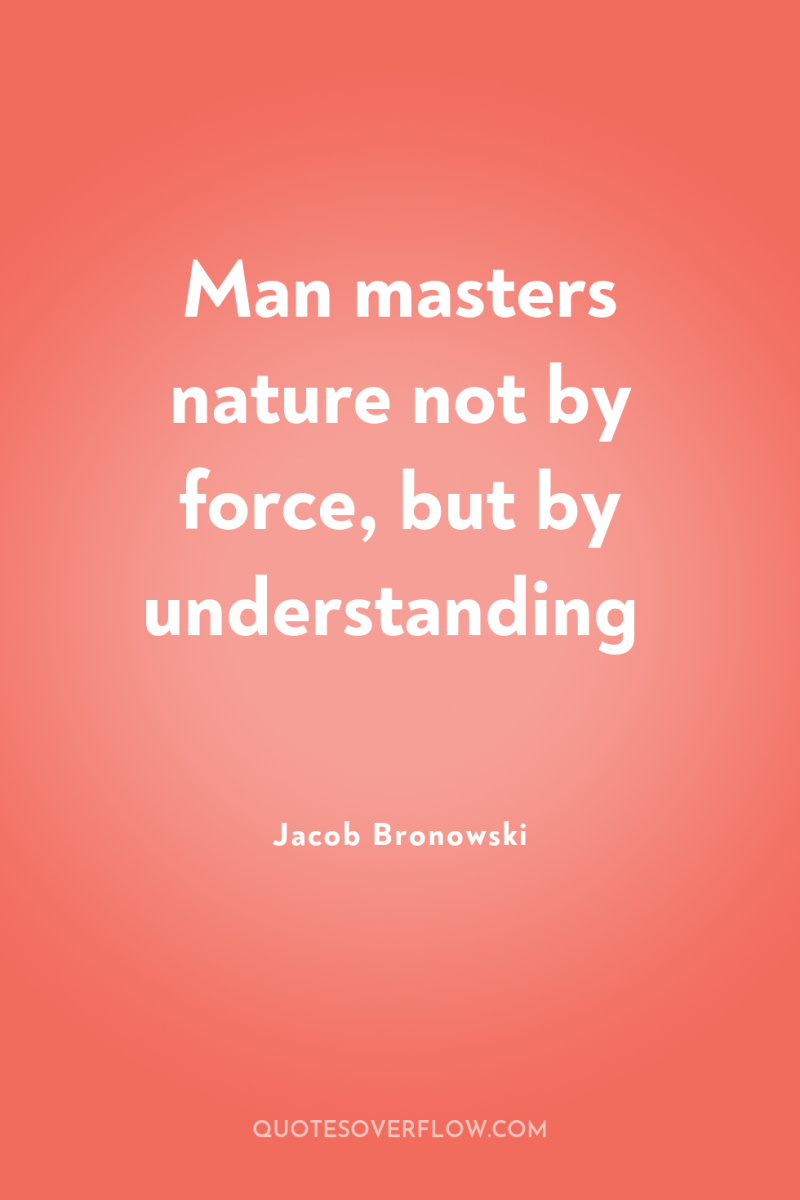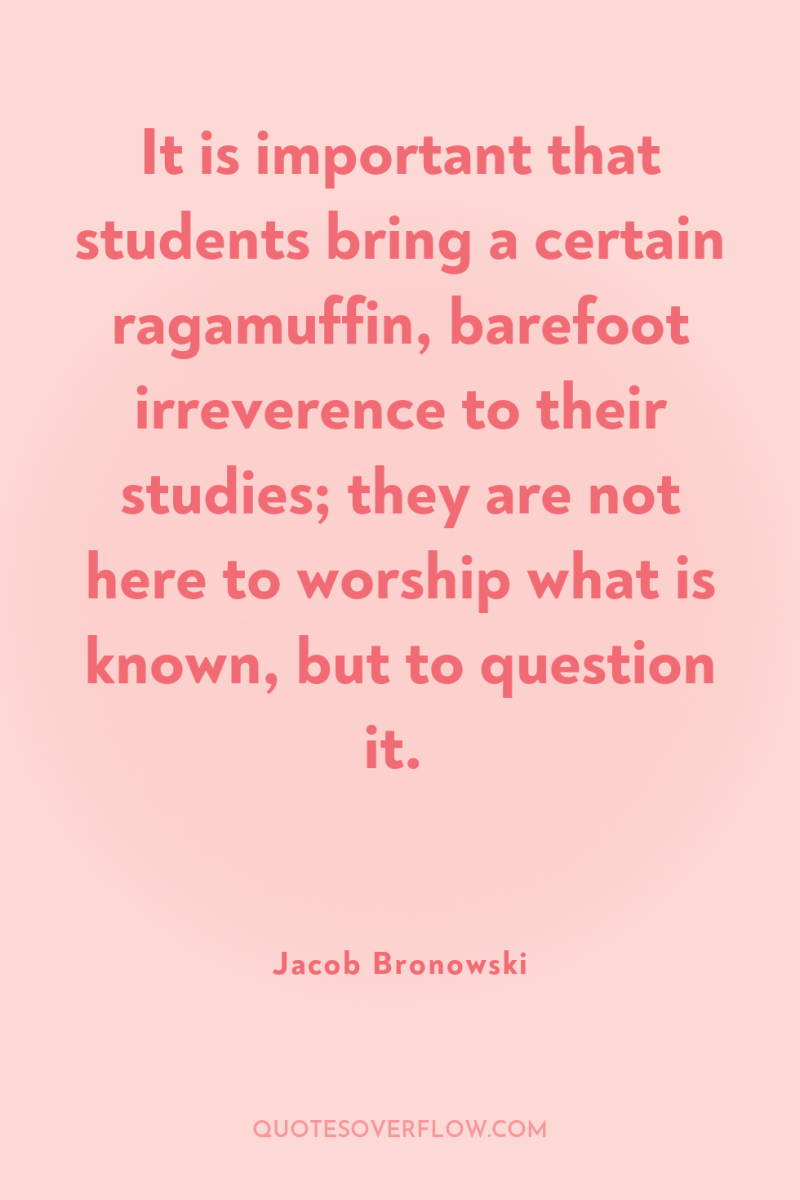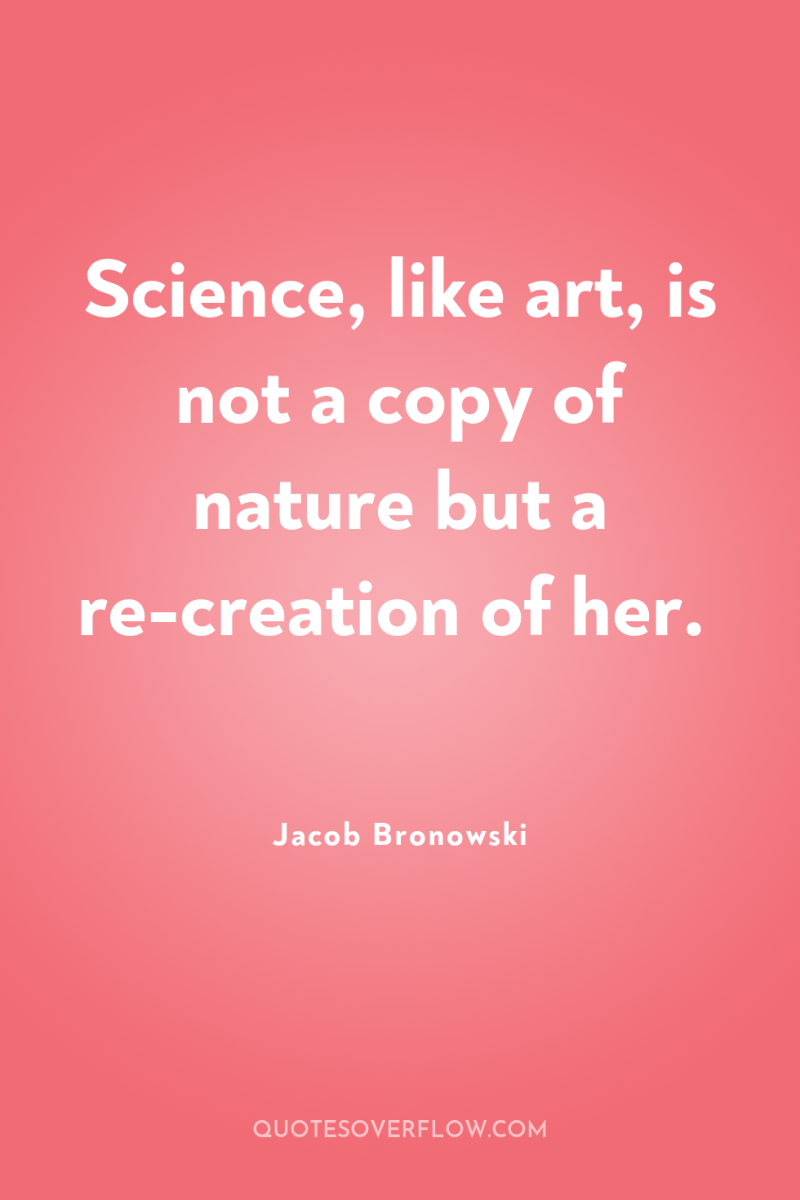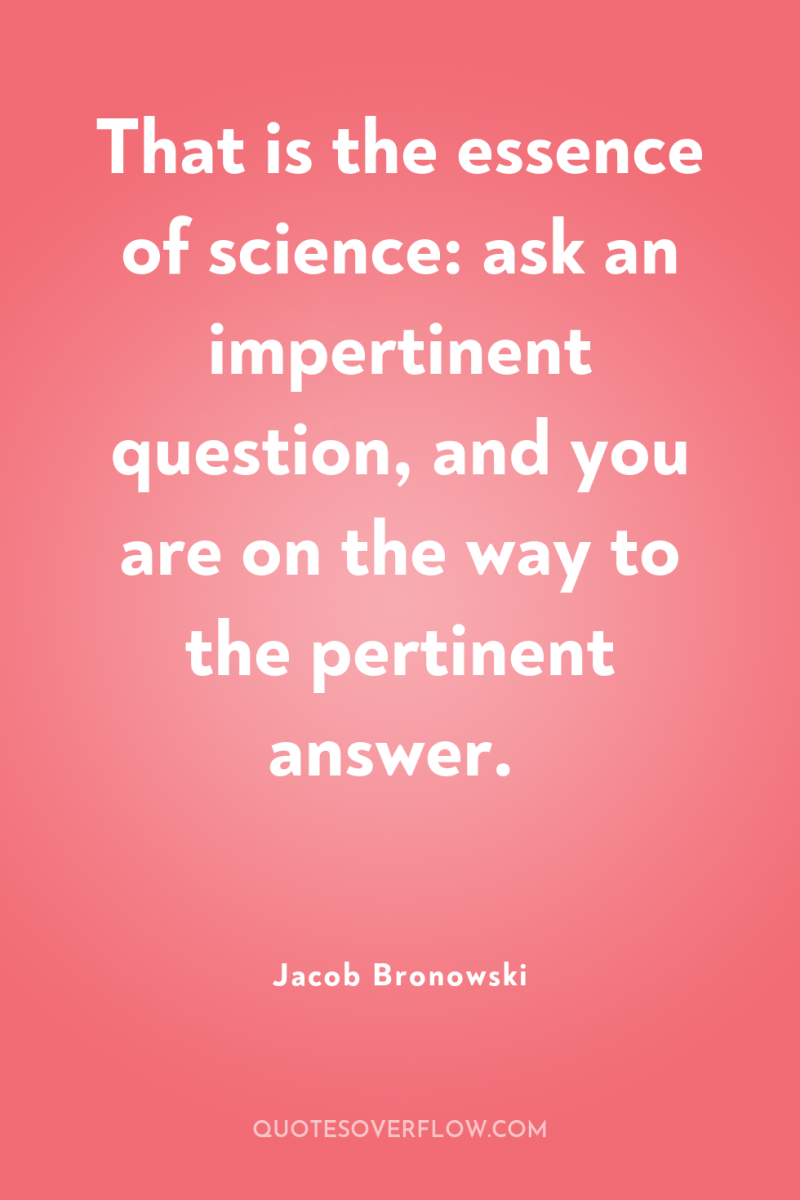This is the concentration camp and crematorium at Auschwitz. This is where people were turned into numbers. Into this pond were flushed the ashes of some four million people. And that was not done by gas. It was done by arrogance. It was done by dogma. It was done by ignorance. When people believe that they have absolute knowledge, with no test in reality, this is how they behave.Jacob Bronowski

Man masters nature not by force, but by understandingJacob Bronowski

It is important that students bring a certain ragamuffin, barefoot irreverence to their studies; they are not here to worship what is known, but to question it.Jacob Bronowski

Science, like art, is not a copy of nature but a re-creation of her.Jacob Bronowski

We are nature's unique experiment to make the rational intelligence prove itself sounder than the reflex. Knowledge is our destinyJacob Bronowski

That is the essence of science: ask an impertinent question, and you are on the way to the pertinent answer.Jacob Bronowski
The creative personality is always one that looks on the world as fit for change and on himself as an instrument for change. Otherwise, what are you creating for? If the world is perfectly all right the way it is, you have no place in it. The creative personality thinks of the world as a canvas for change and of himself as a divine agent of change.Jacob Bronowski
The poem or the discovery exists in two moments of vision: the moment of appreciation as much as that of creation; for the appreciator must see the movement, wake to the echo which was started in the creation of the work. In the moment of appreciation we live again the moment when the creator saw and held the hidden likeness. When a simile takes us aback and persuades us together, when we find a juxtaposition in a picture both odd and intriguing, when a theory is at once fresh and convincing, we do not merely nod over someone else's work. We re-enact the creative act, and we ourselves make the discovery again... Reality is not an exhibit for man's inspection, labeled: "Do not touch." There are no appearances to be photographed, no experiences to be copied, in which we do not take part. We re-make nature by the act of discovery, in the poem or in the theorem. And the great poem and the deep theorem are new to every reader, and yet are his own experiences, because he himself re-creates them. They are the marks of unity in variety; and in the instant when the mind seizes this for itself, in art or in science, the heart misses a beat.Jacob Bronowski
And when we describe it as I shall do, it becomes plain that imagination is a specifically human gift. To imagine is the characteristic act, not of the poet's mind, or the painter's, or the scientist's, but of the mind of man.Jacob Bronowski
Fifty years from now if an understanding of man's origins, his evolution, his history, his progress is not in the common place of the school books we shall not exist.Jacob Bronowski
Progress is the exploration of our own error. Evolution is a consolidation of what have always begun as errors. And errors are of two kinds: errors that turn out to be true and errors that turn out to be false (which are most of them). But they both have the same character of being an imaginative speculation. I say all this because I want very much to talk about the human side of discovery and progress, and it seems to me terribly important to say this in an age in which most non-scientists are feeling a kind of loss of nerve.Jacob Bronowski
We are all afraid - for our confidence for the future for the world. That is the nature of the human imagination. Yet every man every civilization has gone forward because of its engagement with what it has set itself to do. The personal commitment and the emotional commitment working together as one has made the Ascent of Man.Jacob Bronowski
The world is made up of people who never quite get into the first team and who just miss the prizes at the flower show.Jacob Bronowski
We are all shot through with enough motives to make a massacre any day of the week that we want to give them their head.Jacob Bronowski
Man masters nature not by force but by understanding. This is why science has succeeded where magic failed: because it has looked for no spell to cast over nature.Jacob Bronowski
No science is immune to the infection of politics and the corruption of power.Jacob Bronowski
Power is the by-product of understanding.Jacob Bronowski
Knowledge is an unending adventure at the edge of uncertainty.Jacob Bronowski
We are all afraid for our confidence, for the future, for the world. That is the nature of the human imagination. Yet every man, every civilization, has gone forward because of its engagement with what it has set itself to do.Jacob Bronowski
Every animal leaves traces of what it was man alone leaves traces of what he created.Jacob Bronowski
You will die but the carbon will not; its career does not end with you. It will return to the soil, and there a plant may take it up again in time, sending it once more on a cycle of plant and animal life.Jacob Bronowski